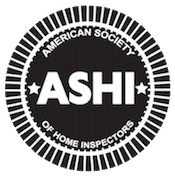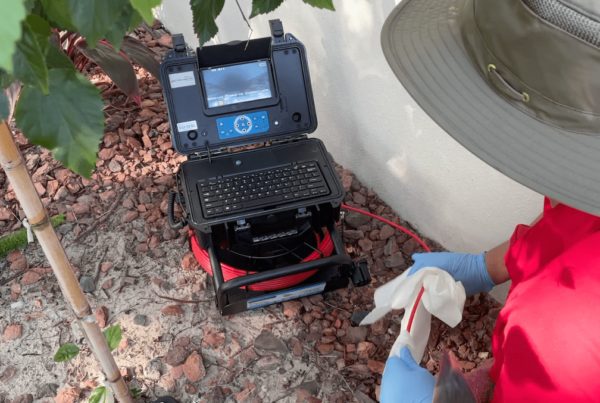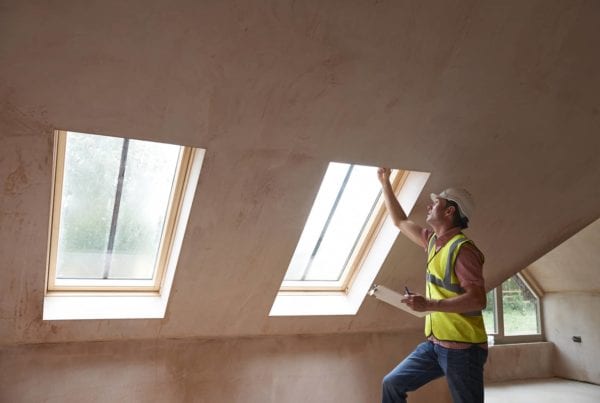
Introduction to Home Inspection Limitations
What is a home inspection?
A home inspection is a visible examination of the home. It is important to note the word “visible”, and also further note that the inspection is only a snapshot of the home at a given time. Therefore, as Realtors and buyers, we should understand that a home inspector is only able to see what you see. Furthermore, more likely than not, you typically can view the house for much longer, rather than a home inspector’s typical 2-3 hours on site.
However, a home inspector does have knowledge, experience, and tools to help him/her evaluate certain components and know where to look for issues.
Now that you know what a home inspection is, what are home inspectors not allowed to do since an inspection is only a visible snapshot of the home?
Not Allowed to Risk Safety
If anything is deemed unsafe, an inspector must not inspect that portion of the home. This can include, but is not limited to:
- Ponding water in a crawlspace
- Animals in the attic
- Exposed wiring in the attic
- Etc.
Non-Operational Systems
If the home’s systems are not readily operational, such as a pool heater, A/C, or oven, an inspector is not allowed/does not have to try to operate the system. A home inspection is not technically exhaustive in this instance, meaning the inspector cannot spend 15 minutes taking apart an HVAC unit in order to understand why it is not working.
Touching/Repairing Certain Items
Most home inspectors will try not to touch or operate certain items they do not have to. For instance, taking off an electrical panel is critical to determine the electrical health of the home.
On the other hand, shutting on/off plumbing shut-offs next to toilets or under sinks may not the best idea. Operating shut-off valves is not required in a home inspection, and often times, operating shut-offs can break them causing them to leak.
Furthermore, if we talk about taking off outlet covers, technically a home inspection is visual so this does not need to be done.
Home Inspector Standards of Practice
Ultimately, a Home Inspector’s Standards of Practice tell us what is required of a home inspection. If a state has home inspector licensing, they will have minimum SOP’s, however, home inspector associations have SOP’s that are considered to be of “higher standard.”
Find out if your state requires home inspector licensing.
Here are popular home inspector associations with higher standards of practice than regular state licensing:

International Association of Certified Home Inspectors

American Society of Home Inspectors

Florida Association of Building Inspectors
“Not Readily Accessible”
Another great point into what home inspectors are not allowed to do is the subject of accessibility.
Home inspectors are not allowed to move personal items due to liability, however, this can be a balance. A home inspector might want to remove a few screws to take a panel off to get access to a spa pump. On the other hand, moving furniture might be considered exhaustive and not accessible.
A few more examples of something that is not accessible could be:
- A car in the way of an attic access
- Furniture blocking electrical outlets
- Snow/Ice in the way of exterior siding or windows
It is really up to the specific home inspector to decide what is best for the client to ensure they are doing their absolute best during the inspection, all while limiting their liability. Therefore, it might be easy for a home inspector to contact the listing agent to see if someone can move a car in order to get into the attic.
The debate of what is readily accessible and what is not continues, since it is such a gray area. Personally, I have not accessed an electrical panel because the exterior vegetation was WAY too overgrown for me to access. Because I decided not to inspect, the seller trimmed the vegetation and our company charged a re-inspection fee for me to re-inspect the electrical panel. (In most cases, you can get the seller to pay for the re-inspection fee, but it’s not always that simple).
The Inspection Agreement and Inspection Notices
It is important for each buyer to read the home inspector’s home inspection agreement. Within the agreement, the buyer can understand fully what is, and is not, included in their home inspection.
Moreover, a seller and listing agent should properly prepare a home for a home inspection. Typically the inspection company gives notice to the listing agent that includes ways the seller can prepare the home, but an experienced listing agent should know what to do.
More on Readily Accessible here.
Here are some other resources on what home inspectors are not allowed to do:
Things a Home Inspector Can’t Tell You – From ASHI
The Limitations of a Home Inspection – From InterNACHI
Secrets a Home Inspector Won’t Tell You – From Reader’s Digest
Have a question? Comment below!
If you liked this article, you should check out how much does a home inspection cost and why you should pay more.



